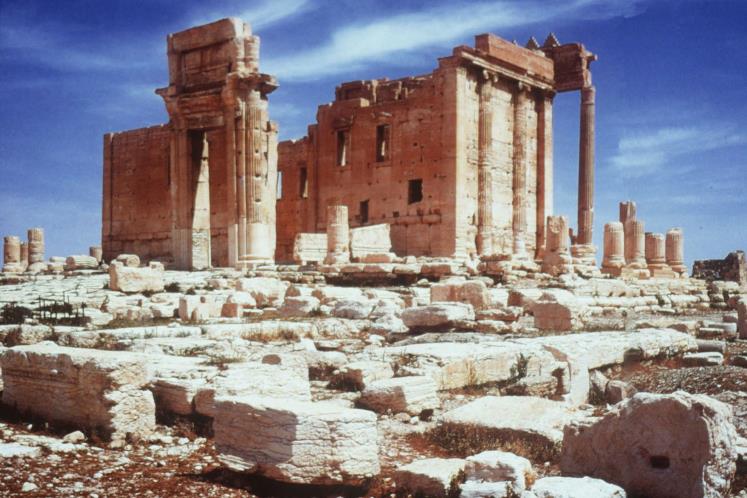Since the remaining small farmers could not compete
因為剩下的小農無法與大莊園競爭
with the latifundia, they were lucky just to survive.
他們能生存下來就很幸運了
That is, the farmers who had survived the
指在第二次布匿戰爭幸存下來的
Second Punic War. The widows of soldiers who died
戰士死于戰爭,他們的寡婦
in the war,uncompensated for the loss of their husbands
無法獲得賠償
usually sold their land to latifundia operators at
通常只好向大莊園運營者出賣他們的土地
ridiculously low prices. Some small farmers left
價格低得驚人,有的小農離開了
because they couldn't even afford to pay their taxes.
因為他們甚至無法繳足夠的稅
With nowhere else to go, these former small farmers
無處可去,這些以前的小農和他們的家人
and their families were forced to move to the big city,
被逼搬往大城市,一般是去羅馬
which almost always Rome. By this time,
在那個時候
the old patrician-plebeian breakdown had faded away,
老的貴族平民沒有了

surviving only in the office of the Tribunate and
幸存在位的只有護民官
in the existence of the Popular Assembly. Thanks
和全民議會
to the Sextio-Licinian laws of three sixty seven BC,
多虧了公元前367年的Sextio-Licinian法律
the classes had been permitted to intermarry.
不同階級之間允許通婚
This brought fresh blood into the upper class and it
上層階級有新鮮血液
gave ambitious and gifted plebeians something to
有野心,有天賦的平民有了機會
shoot for. The old patrician class had been replaced
老的貴族階級被貴族取代
by the nobility. Membership in the noble class was
要想成為貴族階級的一員
determined by being elected consul, or by being the
必須被選為執政員或者
descendant of somebody who had been elected consul.
是過去執政員的后代
Rome was still, surely, an oligarchy in keeping with
羅馬當然依然還是寡頭政治
the dear old mos maiorum.
維護老的祖制
It's just that plebeian blood had revitalized the
只是平民血液為老舊的統治階級
old ruling class. As elsewhere, Rome profited from
注入了青春,正如其它地方一樣,羅馬
its adaptability in allowing social mobility.
從社會流動性中獲益
The only drawback to being a member of the noble
作為貴族或者元老院階級的一員的
or senatorial class was that senators were expected
唯一缺點是元老不應有
to be above having business interests.
商業利益
According to the mos maiorum, it was assumed that
根據祖制,元老們
senators were already wealthy farmers in need of
已經是富有的農民
no additional income. Since they still wanted
不需要額外的收入
additional income, because who doesn't?
但他們依舊想要額外的收入,誰不想呢?
The latifundia were the perfect business venture.
大莊園制就是完美的商業投機
Romans who chose not to be in the senatorial class
羅馬人中不愿意成為元老院階級
and compete for slots on the cursus honorum could
而競爭于晉升體系的
belong to the equestrian class, also known as the
歸為馬術階級,也被稱為騎士階級
class of knights. Once a term for Roman soldiers who
曾經指作為騎兵的羅馬戰士
served as cavalrymen, the equestrian class of Rome's
羅馬共和國晚期的騎士階級由那些
late Republic was made up of those who chose to
關注商業利益而非政治的
focus upon business interests instead of politics.
人組成
These men were often but not always from less
這些人來自暫時
established families, and less wealthy, temporarily.
不太有名望不太富有的家庭
Some equestrians later aspired to become members of
一些騎士后來渴望成為
the senatorial class,but for the most part equestrians
元老階級的一員,但是大多是的騎士
were happy making money and adopting individual
只想很高興的賺錢并把元老
senators as their patrons. Also about this time
作為保護人
politicians began to sort themselves out into
同時政治家開始把他們自己分為兩派
two factions called optimates and populares.
貴族派和民眾派
Neither faction, the optimates and populares,
就美國意義而言兩派都無法被成為
could be called a political party in the American sense,
政治派別
neither had a particular agenda or world view
兩派都沒有一個具體的議程或者世界觀
other than getting the people who belonged to it
只是幫助屬于這一派別的人
elected to the cursus honorum. The factions differed
進入晉升體系罷了
primarily in the noises they made in order to get
兩派主要不同于他們為了獲得一席政治職位
political office. The populares talked furiously about
而發出的聲音,平民派激烈地討論
their deep concern for the Roman masses.
他們對于羅馬大眾的深切關注
They applauded the powers of the tribunes and
他們歡迎護民官獲得權力
appealed to the Council of the Plebeians,
上訴庶民委員會
but basically they just wanted to get elected.
但是基本上他們只是想贏得競選











